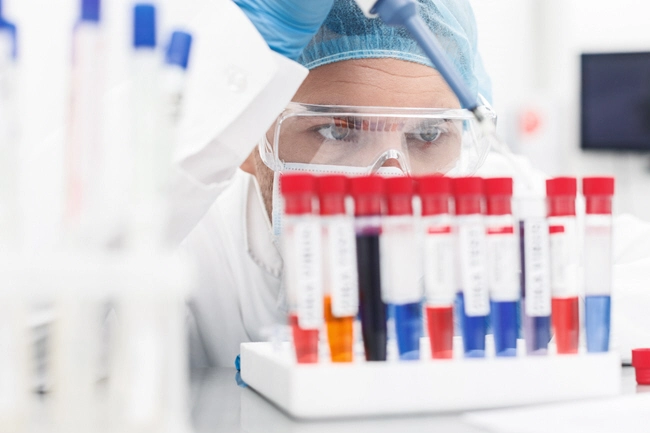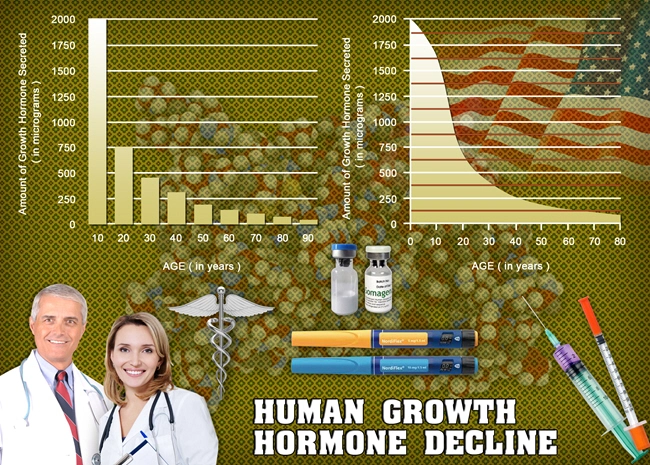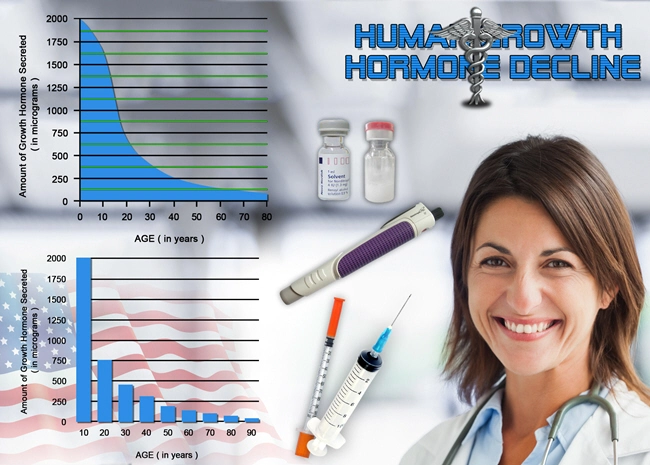
Video Link: https://vimeo.com/288013501
Video Download: Click Here To Download Video
Video Stream: Click Here To Stream Video
Video Link: https://vimeo.com/288014133
Video Download: Click Here To Download Video
Video Stream: Click Here To Stream Video
Then Keep Reading, and Learn How to Defeat These Health Robbers
No question about it. Many Americans suffer from an endless cycle of having to do more and more with less and less sleep and rest, with devastating consequences to their health.
Going through life constantly fatigued is no fun. Moods plummet, productivity suffers, and the quality of life is miserable for those who have sleep problems and are always tired.
Keep reading and discover a few common causes of why this is such a problem, and more important, what you can do about it.
The Importance of Sleep
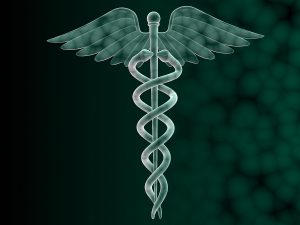 The number one cause of fatigue is a lack of sleep. This is admittedly in the “DUH” category. But as obvious as it may seem, all too many people neglect sleep, much to their detriment.
The number one cause of fatigue is a lack of sleep. This is admittedly in the “DUH” category. But as obvious as it may seem, all too many people neglect sleep, much to their detriment.
As little as three hours' sleep loss has been determined to result in a 50% reduction in the immune system's efficiency. Also, uninterrupted sleep is the key to fighting fatigue.
Research has shown that by interrupting deep sleep over several nights, subjects developed the classic symptoms of chronic fatigue syndrome and fibromyalgia.
Here's why you should make sleep an essential priority in your good health plan. Consider this analogy from your neighborhood movie theater. When the film is rolling, and the show is packed full of people, the floor becomes a mess. Spilled popcorn, discarded candy wrappers, and empty soda cups are tossed to the floor.
Naturally, the floor becomes a total pigsty. But it is impossible for the ushers to do anything about it as long as the movie is playing. However, when the film is over, and the viewers leave, the ushers can go to work and sweep away all of the trash.
Researchers have proved how important sleep is, and the vital functions it accomplishes. Utilizing state-of-the-art technology, they have discovered that during sleep our brains sweep away a type of toxic detritus that builds up while we are awake.
This nasty stuff has been associated with the formation of Alzheimer's disease and other brain disorders. In another study using sleeping mice, scientists observed that the flow of cerebrospinal fluid had a massive increase, which removed harmful toxins that had built up throughout the day.
They also noted that the brain cells shrank, allowing for more fluid to move throughout the brain, removing the waste products. One of the substances extracted was beta-amyloid, which is a harmful, sticky plaque associated with Alzheimer’s.
The most significant implication of the study, assuming that the same toxin-removal process occurs in humans as well, is that insufficient sleep could increase the likelihood of Alzheimer’s later in life. The critical thing to remember is this: the cleaning and sweeping process that happens during sleep change the cellular structure of the brain similarly as the movie analogy.
So, in addition to helping us think better, keep our blood sugar in check, build muscle tissue and releasing growth hormone, a good night's sleep may be our first line of defense from the feared, hideous Alzheimer's disease and other forms of dementia.
Numerous studies have shown that chronic insomnia elevates the risk of developing almost all serious medical problems (heart attack, stroke, diabetes, and Alzheimer's). Knowing this, it's safe to say that sleep is every bit as important as proper nutrition and exercise.
So what steps can you take to get more sleep? For starters, be aware of sleep's importance, and make it a conscious priority to get seven to eight hours per night. Keep a regular sleep schedule, make sure that your bedroom is dark, calm your mind by telling yourself that your problems will be dealt with tomorrow and watch your beverage intake at night, especially caffeine and alcohol.
Also, you could also consider melatonin supplementation.
What is Melatonin?
 Melatonin is secreted by the pineal gland from deep inside the brain. Melatonin is derived from the amino acid L-tryptophan, and its molecular structure gives it incredible anti-oxidant capabilities.
Melatonin is secreted by the pineal gland from deep inside the brain. Melatonin is derived from the amino acid L-tryptophan, and its molecular structure gives it incredible anti-oxidant capabilities.
The most significant influence on melatonin is light, which suppresses the secretion of melatonin. Darkness has the opposite effect by signaling the pineal gland to release the hormone.
The pineal gland does not produce melatonin during daylight hours. But at night, the suprachiasmatic nucleus stops receiving sufficient light signal. This tells the pineal gland to start producing melatonin.
When melatonin is produced, it enters the blood stream and immediately begins to circulate. Once the pineal begins to secrete melatonin, it will continue to do so until the first light of dawn, when the levels of melatonin drop, and this encourages wakefulness.
The critical thing to remember is this: it is not just time that is the only consideration for melatonin release. Even if it is night, if there is light, the pineal gland will be active, but no melatonin will be disseminated.
This is why it is of vital importance to sleep in total darkness, with no television, computers, cell phones, or glowing clocks in the bedroom. The regular cycles of melatonin production and release tend to slow down, due to several causes: aging, medications, and exposure to light in the evening.
The potential health consequences appear to be devastating. In fact, some scientists have suggested that years of working the night shift can lead to several harmful effects, even cancer. This is why melatonin supplements are worth their weight in gold.
Supplements of melatonin can regain the body's circadian rhythm in balance, which is the key to melatonin's ability to deliver deep, restorative sleep, and several other benefits. This is especially important to older people since the production of melatonin declines with age.
This leaves older folks with less protection from neurodegenerative diseases such as Alzheimer's disease, Parkinson's disease, and stroke. The bottom line? If you are having trouble falling asleep, consider giving melatonin a try.
Also, magnesium, zinc, and herbs (valerian root, passionflower, ashwagandha, magnolia bark) have helped many people deal with insomnia.
Dehydration – a Hidden Cause of Insomnia
It's a simple equation. The more you are dehydrated, the harder it is for your body to recharge and detoxify. The longer it takes to detoxify, the more sleep you require. Dehydration can adversely affect your ability to sleep, thus resulting in a vicious circle.
 Most people know that they should stay hydrated during waking hours. But your body needs to stay hydrated during sleep.
Most people know that they should stay hydrated during waking hours. But your body needs to stay hydrated during sleep.
Also, research indicates that dehydration may cause your mind to be overactive. This can result in you having trouble getting to sleep.
Dehydration and Fatigue
When we are dehydrated, our internal cleansing system can't work anywhere nearly as efficiently as it should, which overloads our organs and increases their workload. The result? Feeling tired.
Most of our bodily functions operate best when they are in proper fluid balance. In fact, minute changes in fluid balance can affect us far out of proportion to what we may think.
If our fluid balance doesn't return to the right levels, our blood volume can drop. This makes our heart work harder, which causes the heart to draw blood from the muscles and organs. The result? Muscle cramps, light-headedness...and fatigue.
Finally, there is one more thing to consider. Dehydration causes poor digestion. This causes the digestive system to work harder, resulting in...(drum roll)...FATIGUE!
Other Causes of Fatigue and Trouble Getting to Sleep
- Sleep apnea. This condition briefly stops your breathing during the night, which disrupts your sleep for a quick moment, even though you are usually not aware of it. The result? You guessed it...fatigue the next day. The solution is to lose weight, stop smoking and consider obtaining a CPAP device that will keep your air passages open during sleep.
- Eating habits. Eating too little and eating the wrong foods can wreak havoc on your blood sugar level, which will make you feel sluggish. Make sure you are eating breakfast and load up on protein and complex carbs at each meal.
- Anemia. This is a particularly common cause of fatigue with women. Low red blood cells lost to menstruation can rob a woman of iron, which creates an
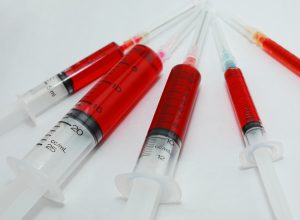 oxygen deficit, which causes fatigue. If you have this condition, iron-rich foods such as liver, lean meat, beans, and enriched cereal can be combined with iron supplements to attack the problem.
oxygen deficit, which causes fatigue. If you have this condition, iron-rich foods such as liver, lean meat, beans, and enriched cereal can be combined with iron supplements to attack the problem. - Depression. This is all-too-often overlooked, but it shouldn't be since it can contribute to fatigue. If you can't improve on your own, consider obtaining professional help.
- Hypothyroidism. The thyroid rules your metabolism, which is how fast your body converts food into energy. When it is under-active, and your metabolism slows down, you can feel tired and start gaining unneeded weight. If a blood test discovers that your thyroid hormones are low, synthetic hormones can work wonders.
- Hidden Urinary Tract Infection (UTI). This affliction can be painfully obvious. But it may be disguised as well, with fatigue as the only symptom. Check for it, and the right news is this: antibiotics can usually return you to normal within a week.
- Diabetes. Add fatigue to another one of the parades of horrors that this disease brings. Too much sugar remains in the blood stream instead of going into the cells, where it would convert into energy. If you are pre-diabetic, make immediate changes in nutrition and exercise. If that fails, consider insulin therapy and medications.
- Heart Disease. If your stamina is not what it used to be, and fatigue is almost constant, check with your doctor about heart disease. Lifestyle changes and medication can right the ship.
- Shift Work. Working nights or rotating is another factor that can knock your internal clock out of whack. You may be fatigued when you need to work and be awake when you need to sleep. This causes massive disruption to the circadian rhythm, which is our internal clock that is controlled by the earlier-mentioned pineal gland. Try to sleep in a dark room if possible, even if it is during the day, stick to a regular sleep schedule as much as possible, and don't forget melatonin.
- Food Allergies. Believe it or not, this cause of fatigue is another thing that is often overlooked but can be the culprit for your feeling tired. If you are always tired after meals, may be it is something you are eating regularly. Try to eliminate foods one at a time and see how you feel. Also, consider a food allergy test.
- Chronic Fatigue Syndrome (CFS) and Fibromyalgia. Last but certainly not least, these twin demons can cause fatigue that lasts more than six months and can make your daily activities seem like you are walking around with 50-pound weights attached to your ankles and a 100-pound weighted vest. Consider professional help if you cannot see improvement on your own.
- Medications. Make sure you read the label on any prescription or over-the-counter drug you take; it may contain caffeine. These substances can also cause
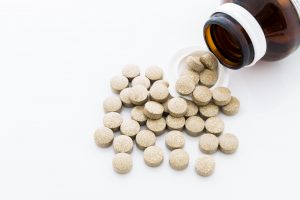 internal changes in your body's mechanism that play crucial roles in sleep. Here is a list of drugs and supplements that may interfere with your ability to fall and stay asleep: beta-blockers, alpha-blockers, corticosteroids, anti-depressants, statins, Alzheimer's and dementia drugs, ACE inhibitors, allergy medicines, and joint pain supplements glucosamine and chondroitin. There is more than a bit of irony about this problem: insomnia aggravates many of these same conditions that these substances treat! This is, sadly, the beginning of a vicious cycle of additional drug use, more side effects, and more insomnia.
internal changes in your body's mechanism that play crucial roles in sleep. Here is a list of drugs and supplements that may interfere with your ability to fall and stay asleep: beta-blockers, alpha-blockers, corticosteroids, anti-depressants, statins, Alzheimer's and dementia drugs, ACE inhibitors, allergy medicines, and joint pain supplements glucosamine and chondroitin. There is more than a bit of irony about this problem: insomnia aggravates many of these same conditions that these substances treat! This is, sadly, the beginning of a vicious cycle of additional drug use, more side effects, and more insomnia. - Bad bacteria in your gut. Parasites residing in your digestive system could be the culprit keeping you awake. These creatures are often most active in the early morning hours of 3 to 4 A.M. To prevent parasites from gaining a foothold, pay strict attention to eating gut-friendly foods (kefir, Sauerkraut, yogurt) to increase the useful bacteria residing in your gut, and consider supplementing with both probiotics and prebiotics. Some researchers feel the link between the brain and the gut is so strong that the stomach is often referred to as "the second brain." This guarantees that digestive distress will wreak havoc on your sleep, so do all you can to prevent it.
- Stress. Stress is a killer, period. To prevent stress from keeping you up nights, find a method of stress-busting that you enjoy and can stay with. Meditation, exercise, hobbies; whatever works for you. Don't neglect this!
- Hormone deficiency. Low hormone levels often are the cause of chronic insomnia, especially in older people. Regrettably, many physicians often overlook this and fail to evaluate hormone levels. Men in particular often have low testosterone levels, and both genders suffer from low growth hormone due to aging. Our clinic will never overlook this vital area. Hormone replacement therapy (HRT) has helped countless sufferers of insomnia. Our clinic offers the most efficient, up-to-date methods of restoring your hormones to their youthful levels. HRT delivers many benefits, and erasing insomnia is a bonus!
Remember this: we are always reminded of the importance of correct nutrition and exercise...with good reason.
We are what we eat, and staying glued to the couch or recliner is a guaranteed ticket to an early sleep with the worms.
But the formula is not a duet. It is a tripod, with sleep being vital if an often neglected, member of the team.
The final thought is this. Here is the perfect excuse to get more sleep: “I’m sorry; I have to get enough sleep tonight, so I don’t get Alzheimer’s.”
References
Contact Us Today For A Free Consultation
Dear Patient,
Once you have completing the above contact form, for security purposes and confirmation, please confirm your information by calling us.
Please call now: 1-800-380-5339.
Welcoming You To Our Clinic, Professor Tom Henderson.

- Are You Constantly Feeling Tired And Fatigued ? [Last Updated On: April 27th, 2025] [Originally Added On: May 1st, 2018]
- How to Understand and Deal with Cirrhosis [Last Updated On: March 13th, 2025] [Originally Added On: April 12th, 2019]
- Insomnia: The Silent Killer [Last Updated On: March 12th, 2025] [Originally Added On: April 30th, 2019]
- Lipocine Reintroduces Tlando [Last Updated On: August 19th, 2025] [Originally Added On: March 18th, 2020]
- High-Intensity Interval Training Boosts Both Body and Mind [Last Updated On: February 20th, 2025] [Originally Added On: May 10th, 2020]
- Tattoo Safety: What to Know Before You Get a Tattoo [Last Updated On: February 28th, 2025] [Originally Added On: June 2nd, 2020]
- Testosterone and Fatherhood [Last Updated On: April 25th, 2025] [Originally Added On: October 12th, 2020]
- L-Arginine: The Key to Both Heart Health and Sexual Health [Last Updated On: March 10th, 2025] [Originally Added On: December 4th, 2020]
- The Importance of Hormonal Balance for Menopause [Last Updated On: February 20th, 2025] [Originally Added On: December 14th, 2020]
- Menopause Drugs: Study Stokes New Debate Over Cancer Risks [Last Updated On: March 8th, 2025] [Originally Added On: December 16th, 2020]
- Study Examines Link Between Growth Hormones and Osteoporosis [Last Updated On: March 11th, 2025] [Originally Added On: December 17th, 2020]
- Everything You Need to Know About Clomiphene [Last Updated On: March 9th, 2025] [Originally Added On: December 20th, 2020]
- Fast Facts About DHEA: What You Need to Know About This Natural Steroid [Last Updated On: August 16th, 2025] [Originally Added On: March 4th, 2021]
- Enjoy a Few Drinks Weekly? Beware: This May Be a Link to Low Sperm Counts and Quality [Last Updated On: March 6th, 2025] [Originally Added On: August 16th, 2021]
- Hormone Therapy May Benefit Some Women's Hearts [Last Updated On: February 20th, 2025] [Originally Added On: August 18th, 2021]
- HGH Male Blood Panel [Last Updated On: October 28th, 2021] [Originally Added On: September 28th, 2021]
- Growth Hormone Battles Osteoporosis [Last Updated On: February 26th, 2025] [Originally Added On: October 11th, 2021]
- Growth hormone = More Sleep = Better Sex! [Last Updated On: March 7th, 2025] [Originally Added On: October 11th, 2021]
- Low Testosterone and Hypogonadism: The Difference [Last Updated On: May 19th, 2025] [Originally Added On: October 12th, 2021]
- The Link Between Testosterone and Tylenol [Last Updated On: February 21st, 2025] [Originally Added On: October 12th, 2021]
- Hormone Replacement Therapy and Aerobics May Ease Menopause Symptoms [Last Updated On: February 19th, 2025] [Originally Added On: October 13th, 2021]
- Growth Hormone and Lifestyle = An Extended Lifespan [Last Updated On: February 23rd, 2025] [Originally Added On: October 13th, 2021]
- Growth Hormone, Foods, and Supplements for Healthy Skin [Last Updated On: May 10th, 2025] [Originally Added On: October 13th, 2021]
- Hormone Replacement Therapy, Menopause, and Cancer [Last Updated On: February 24th, 2025] [Originally Added On: October 13th, 2021]
- Growth Hormone, Exercise, and Osteoporosis: The Facts! [Last Updated On: February 22nd, 2025] [Originally Added On: October 13th, 2021]
- Hormone Replacement Therapy and Menopause [Last Updated On: February 25th, 2025] [Originally Added On: October 13th, 2021]
- Testosterone and Women [Last Updated On: February 18th, 2025] [Originally Added On: October 13th, 2021]
- Growth Hormone and Smoking [Last Updated On: February 19th, 2025] [Originally Added On: October 14th, 2021]
- Testosterone, Statins, and Prostate Cancer [Last Updated On: February 18th, 2025] [Originally Added On: October 19th, 2021]
- Researchers Investigate Declining Sperm Counts, Find Chemicals Rampant [Last Updated On: May 23rd, 2025] [Originally Added On: June 14th, 2022]
- Understanding the Role of Hormonal Balance in Menopause [Last Updated On: February 7th, 2025] [Originally Added On: February 7th, 2025]
- Introduction: Benefits of Hormone Replacement Therapy [Last Updated On: February 8th, 2025] [Originally Added On: February 8th, 2025]
- The Influences and Benefits of High-Intensity Interval Training [Last Updated On: February 8th, 2025] [Originally Added On: February 8th, 2025]
- The Link Between Human Growth Hormone, Exercise, and Osteoporosis [Last Updated On: February 9th, 2025] [Originally Added On: February 9th, 2025]
- The Therapeutic Benefits of Human Growth Hormone [Last Updated On: February 16th, 2025] [Originally Added On: February 16th, 2025]
- Introduction: The Reality of Menopause [Last Updated On: February 18th, 2025] [Originally Added On: February 18th, 2025]
- An Introduction to the Benefits of Human Growth Hormone Replacement Therapy [Last Updated On: February 19th, 2025] [Originally Added On: February 19th, 2025]
- Introduction to Hormone Replacement Therapy [Last Updated On: February 20th, 2025] [Originally Added On: February 20th, 2025]
- Introduction: Evaluating the Safety of Hormone Replacement Therapy [Last Updated On: February 23rd, 2025] [Originally Added On: February 23rd, 2025]
- The Rise of Tattoos in America [Last Updated On: February 23rd, 2025] [Originally Added On: February 23rd, 2025]
- The Influence of Growth Hormone and Sleep on Libido [Last Updated On: February 27th, 2025] [Originally Added On: February 27th, 2025]
- Introduction: The Association Between Alcohol Consumption and Sperm Quality [Last Updated On: February 27th, 2025] [Originally Added On: February 27th, 2025]
